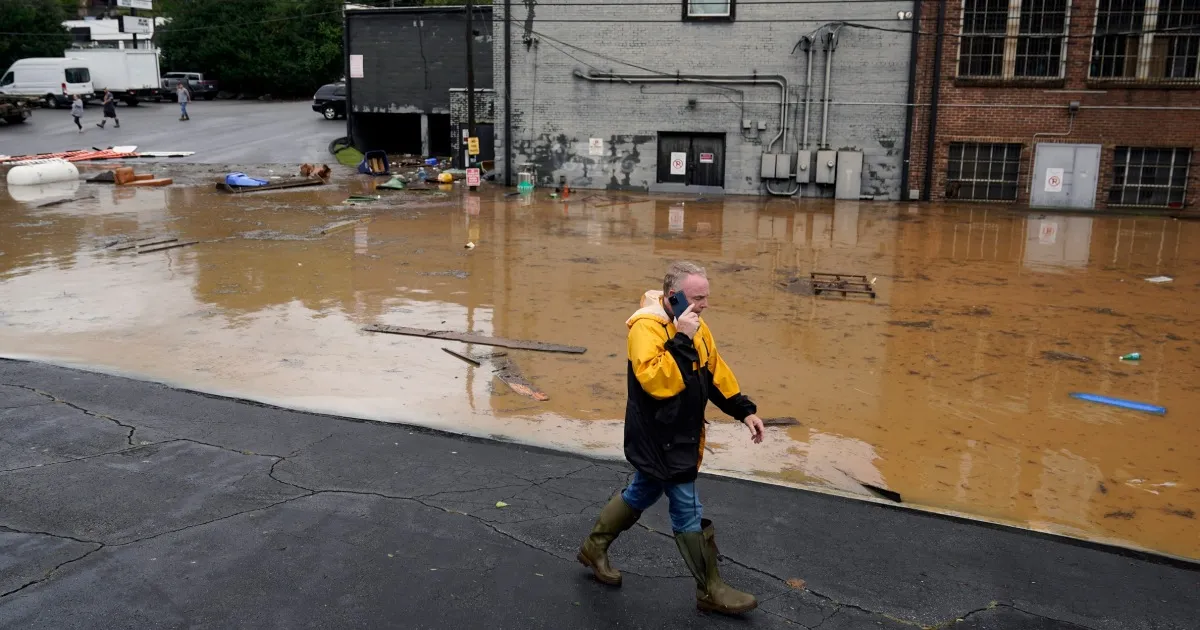
After Hurricane Helene wreaked havoc in Asheville, North Carolina, the sound of Blue Ridge Public Radio echoed through the open car windows of residents attempting to reconnect with the outside world. As they gathered on a ridge seeking cell service last fall, the station became a crucial lifeline. Lisa Savage, a volunteer at a local church in the aftermath of the hurricane, remarked, “The public radio station was alerting people what was going on.” As community members stood in line for essentials like water and food, the updates from the station became a frequent topic of discussion.
Recently, public radio stations across the nation have faced significant funding threats under the current administration. President Donald Trump signed an executive order aimed at cutting public subsidies for NPR and PBS, citing alleged bias in their reporting. This order instructs the Corporation for Public Broadcasting (CPB) and other federal agencies to halt federal funding for these essential broadcasters, which have proven to be a vital source of information during natural disasters when power and communication lines are down.
In many remote and rural areas of the United States, public radio stations serve as the only source of local news. For instance, after volunteering in Asheville, Savage recalled driving through another impacted community and tuning into Blue Ridge Public Radio for updates on where residents could access water supplies. “So that was crucial,” she said, emphasizing the station’s role in connecting those in need with essential resources.
In West Texas, Marfa Public Radio provides locals with a mix of national and regional news, along with music. Tom Livingston, the interim executive director, highlighted the station's uniqueness: “Marfa Public Radio is the only radio service in a lot of the geographic area that we cover.” Its existence is crucial for disseminating news and safety information to the community.
Trump's recent order has raised concerns about the future of public broadcasting. The CPB, which provides around half a billion dollars in public funding annually to NPR and PBS, has stated it is not subject to the president's directive. The leaders of PBS, NPR, and CPB have already indicated that they believe the order is illegal, suggesting that a court battle over this issue is likely. Additionally, the White House plans to ask Congress to rescind CPB funding as part of a broader $9.1 billion budget cut proposal.
Local radio stations rely on a mix of government funding, donations, and philanthropic grants, with those in smaller markets being particularly vulnerable to cuts. For example, WMMT, based in Whitesburg, Kentucky, serves a listener base across five Appalachian states. General Manager Teddy Wimer noted that many listeners “want to hear people that sound like folks that they know from Appalachia.” The station operates out of a renovated Winnebago called the Possum Den and relies heavily on CPB funding to continue its operations.
In the region along the West Virginia-Virginia border, residents can access signals from distant radio stations. However, Scott Smith, general manager of Allegheny Mountain Radio, emphasized that these stations lack the local flavor that is integral to their community. “This is the only game in town for that sort of thing,” he stated. In his home base of Monterey, Virginia, where cell coverage is limited, the station has become an indispensable source of information during emergencies.
Smith noted that during the 2012 derecho, which knocked out power to 680,000 West Virginians, locals turned to his station for critical updates. “Yeah, we play music. Yeah, we get on the air and joke around,” he said. “But we’re here providing basic level services of information, emergency information, that sort of thing, to our communities.” With 68% of its annual budget coming from CPB, the station stands to lose a significant portion of its funding if cuts are implemented.
As the situation unfolds, Smith describes the ongoing concerns about funding as a “wait-and-see game.” He expressed uncertainty about how Congress will respond to the proposed CPB funding cuts. “The answer to how we move forward is vague,” he admitted. However, he remains committed to serving the community, affirming, “We will still continue to be here as long as we can be.”